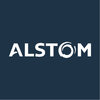
i
Tata
Technologies
Filter interviews by
Tata Technologies Senior Design Engineer Interview Questions and Answers
12 Interview questions
DFT prediction refers to using Design for Testability techniques to predict potential issues in a design before manufacturing.
DFT prediction involves analyzing the design for potential testability issues.
It helps in identifying areas that may be difficult to test or diagnose during production.
Examples of DFT prediction techniques include fault simulation, ATPG, and scan chain insertion.
First angle and third angle methods are two different approaches used in engineering drawings to represent the 3D object in 2D.
First angle method is commonly used in Europe and Asia, where the object is imagined to be in the first quadrant of a Cartesian coordinate system.
Third angle method is commonly used in North America, where the object is imagined to be in the third quadrant of a Cartesian coordinate system.
...
Creating a diagram for tool testing involves defining inputs, processes, and outputs clearly.
Identify the input parameters for the tool test, such as material type and dimensions.
Outline the testing process, including setup, execution, and data collection.
Define expected outputs, like performance metrics or failure rates.
Use flowcharts or block diagrams to visualize the testing process.
Example: For a tensile test,...
Handle extra work by prioritizing tasks, delegating when possible, setting boundaries, and communicating with team members.
Prioritize tasks based on deadlines and importance
Delegate tasks to team members if possible
Set boundaries and communicate with team members about workload
Stay organized and manage time effectively
Seek help or resources if needed
Power factor is the ratio of real power to apparent power in an AC circuit.
It is a measure of how efficiently power is being used in a circuit.
A power factor of 1 means all the power is being used efficiently, while a power factor of 0 means no power is being used efficiently.
Power factor can be improved by using capacitors or other power factor correction devices.
It is important to maintain a high power factor to...
SAP knowledge is crucial for managing design processes, data integration, and project tracking in engineering roles.
Understanding SAP modules like PLM (Product Lifecycle Management) for design documentation.
Using SAP for tracking project timelines and resource allocation.
Familiarity with SAP's reporting tools to analyze design performance metrics.
Experience with SAP integration for collaboration with manufacturing...
Parts can be released through a formal release process that includes documentation and quality checks.
Create a release checklist to ensure all necessary steps are completed
Document the release process and make it accessible to all team members
Perform quality checks on the parts before releasing them
Ensure all necessary approvals are obtained before releasing the parts
Maintain a record of all released parts for fut...
Effective plastic design guidelines ensure optimal performance, manufacturability, and cost-efficiency in product development.
Use uniform wall thickness to prevent warping and ensure even cooling during manufacturing.
Incorporate draft angles (typically 1-3 degrees) to facilitate easy part ejection from molds.
Design for assembly by minimizing the number of parts and using snap-fits where possible.
Consider the mater...
Key features and benefits of electric vehicles include environmental friendliness, lower operating costs, and improved performance.
Environmental friendliness: Electric vehicles produce zero tailpipe emissions, reducing air pollution and greenhouse gas emissions.
Lower operating costs: Electric vehicles have lower fuel and maintenance costs compared to traditional gasoline vehicles.
Improved performance: Electric veh...
Parameters for proto model feasibility in existing facility include space availability, equipment compatibility, material sourcing, and cost analysis.
Evaluate space availability to ensure the facility can accommodate the proto model production process.
Check equipment compatibility to ensure existing machinery can be used for proto model fabrication.
Assess material sourcing options to determine availability and cos...
Tata Technologies Senior Design Engineer Interview Experiences
22 interviews found
I applied via Naukri.com and was interviewed in Apr 2024. There were 2 interview rounds.
(2 Questions)
- Q1. What DFT Prediction
- Ans.
DFT prediction refers to using Design for Testability techniques to predict potential issues in a design before manufacturing.
DFT prediction involves analyzing the design for potential testability issues.
It helps in identifying areas that may be difficult to test or diagnose during production.
Examples of DFT prediction techniques include fault simulation, ATPG, and scan chain insertion.
- Q2. Parameters for proto model feasibility in existing facility
- Ans.
Parameters for proto model feasibility in existing facility include space availability, equipment compatibility, material sourcing, and cost analysis.
Evaluate space availability to ensure the facility can accommodate the proto model production process.
Check equipment compatibility to ensure existing machinery can be used for proto model fabrication.
Assess material sourcing options to determine availability and cost-eff...
(2 Questions)
- Q1. Notice period at current employment
- Q2. Negotiations for Salary package
Interview Preparation Tips
- Soft Skills
- Process Engineering
- Output methodology
- Professional Activities
Ensure all the negotiations must be pre-planned.
I applied via Referral and was interviewed in May 2024. There were 2 interview rounds.
(2 Questions)
- Q1. Difference between first angle & third angle method?
- Ans.
First angle and third angle methods are two different approaches used in engineering drawings to represent the 3D object in 2D.
First angle method is commonly used in Europe and Asia, where the object is imagined to be in the first quadrant of a Cartesian coordinate system.
Third angle method is commonly used in North America, where the object is imagined to be in the third quadrant of a Cartesian coordinate system.
In fi...
- Q2. Seating Regulations?
(2 Questions)
- Q1. Why left previous job?
- Ans.
I left my previous job to seek new challenges and opportunities for growth in a more innovative environment.
I was looking for a role that offered more opportunities for professional development.
The company was undergoing significant restructuring, which limited my ability to contribute effectively.
I wanted to work on more cutting-edge projects that align with my passion for design engineering.
I felt that my skills coul...
- Q2. How much is Preferred salary?
(2 Questions)
- Q1. Technical round
- Q2. Cad test
Interview Preparation Tips
I applied via Naukri.com and was interviewed in Apr 2023. There were 2 interview rounds.

(2 Questions)
- Q1. Interview is on Online and also a Tool Test is taken before the interview is star
- Q2. To perform and make a diagram of given input in tool test
- Ans.
Creating a diagram for tool testing involves defining inputs, processes, and outputs clearly.
Identify the input parameters for the tool test, such as material type and dimensions.
Outline the testing process, including setup, execution, and data collection.
Define expected outputs, like performance metrics or failure rates.
Use flowcharts or block diagrams to visualize the testing process.
Example: For a tensile test, inpu...
I appeared for an interview before May 2024, where I was asked the following questions.
- Q1. Automotive nomenclature
- Q2. Plastic design guidelines
- Ans.
Effective plastic design guidelines ensure optimal performance, manufacturability, and cost-efficiency in product development.
Use uniform wall thickness to prevent warping and ensure even cooling during manufacturing.
Incorporate draft angles (typically 1-3 degrees) to facilitate easy part ejection from molds.
Design for assembly by minimizing the number of parts and using snap-fits where possible.
Consider the material p...
Interview Preparation Tips
I appeared for an interview before Feb 2024.
(1 Question)
- Q1. What are the key features and benefits of electric vehicles?
- Ans.
Key features and benefits of electric vehicles include environmental friendliness, lower operating costs, and improved performance.
Environmental friendliness: Electric vehicles produce zero tailpipe emissions, reducing air pollution and greenhouse gas emissions.
Lower operating costs: Electric vehicles have lower fuel and maintenance costs compared to traditional gasoline vehicles.
Improved performance: Electric vehicles...
Interview Preparation Tips
I appeared for an interview before May 2024, where I was asked the following questions.
- Q1. Self rating of CATIA V5 software
- Ans.
CATIA V5 is a powerful CAD software used for product design, engineering, and manufacturing with advanced modeling capabilities.
Parametric Design: CATIA V5 allows for parametric modeling, enabling changes to be made easily by adjusting parameters, which is crucial for iterative design.
Surface Modeling: The software excels in complex surface modeling, making it ideal for industries like automotive and aerospace where ae...
- Q2. Tell me about yourself

(2 Questions)
- Q1. 1. What is Power factor?
- Ans.
Power factor is the ratio of real power to apparent power in an AC circuit.
It is a measure of how efficiently power is being used in a circuit.
A power factor of 1 means all the power is being used efficiently, while a power factor of 0 means no power is being used efficiently.
Power factor can be improved by using capacitors or other power factor correction devices.
It is important to maintain a high power factor to avoi...
- Q2. Sap knowledge required?
- Ans.
SAP knowledge is crucial for managing design processes, data integration, and project tracking in engineering roles.
Understanding SAP modules like PLM (Product Lifecycle Management) for design documentation.
Using SAP for tracking project timelines and resource allocation.
Familiarity with SAP's reporting tools to analyze design performance metrics.
Experience with SAP integration for collaboration with manufacturing and ...
Interview Preparation Tips
I appeared for an interview before Feb 2024.
CAD Test, Technical Interview, HR Interview.
I applied via Walk-in and was interviewed in May 2022. There were 4 interview rounds.

(1 Question)
- Q1. All related to plastic & trims.
(1 Question)
- Q1. Previous working Knowledge
(1 Question)
- Q1. Only sallery discussion
Interview Preparation Tips
Top trending discussions






Tata Technologies Interview FAQs
The duration of Tata Technologies Senior Design Engineer interview process can vary, but typically it takes about less than 2 weeks to complete.
Tell us how to improve this page.
Tata Technologies Interviews By Designations
- Tata Technologies Design Engineer Interview Questions
- Tata Technologies Senior Design Engineer Interview Questions
- Tata Technologies Graduate Engineer Trainee (Get) Interview Questions
- Tata Technologies Solution Developer Interview Questions
- Tata Technologies Technical Lead Interview Questions
- Tata Technologies Senior Engineer Interview Questions
- Tata Technologies Software Developer Interview Questions
- Tata Technologies Graduate Trainee Interview Questions
- Show more
Interview Questions for Popular Designations
- Senior Software Engineer Interview Questions
- Senior Engineer Interview Questions
- Design Engineer Interview Questions
- Junior Engineer Interview Questions
- Electrical Design Engineer Interview Questions
- Structural Design Engineer Interview Questions
- Junior Design Engineer Interview Questions
- Product Design Engineer Interview Questions
- Show more
Overall Interview Experience Rating
based on 18 interview experiences
Difficulty level
Duration
Interview Questions from Similar Companies
Tata Technologies Senior Design Engineer Reviews and Ratings
based on 283 reviews
Rating in categories
|
Senior Design Engineer
2.3k
salaries
| ₹5.2 L/yr - ₹16 L/yr |
|
Design Engineer
2k
salaries
| ₹3.1 L/yr - ₹10.1 L/yr |
|
Technical Lead
1.7k
salaries
| ₹7.2 L/yr - ₹28.5 L/yr |
|
Solution Developer
1.7k
salaries
| ₹3 L/yr - ₹12.5 L/yr |
|
Team Lead
663
salaries
| ₹6.9 L/yr - ₹24 L/yr |

Larsen & Toubro Limited

Megha Engineering & Infrastructures

Shapoorji Pallonji Group

Kalpataru Projects International
- Home >
- Interviews >
- Tata Technologies Interview Questions














